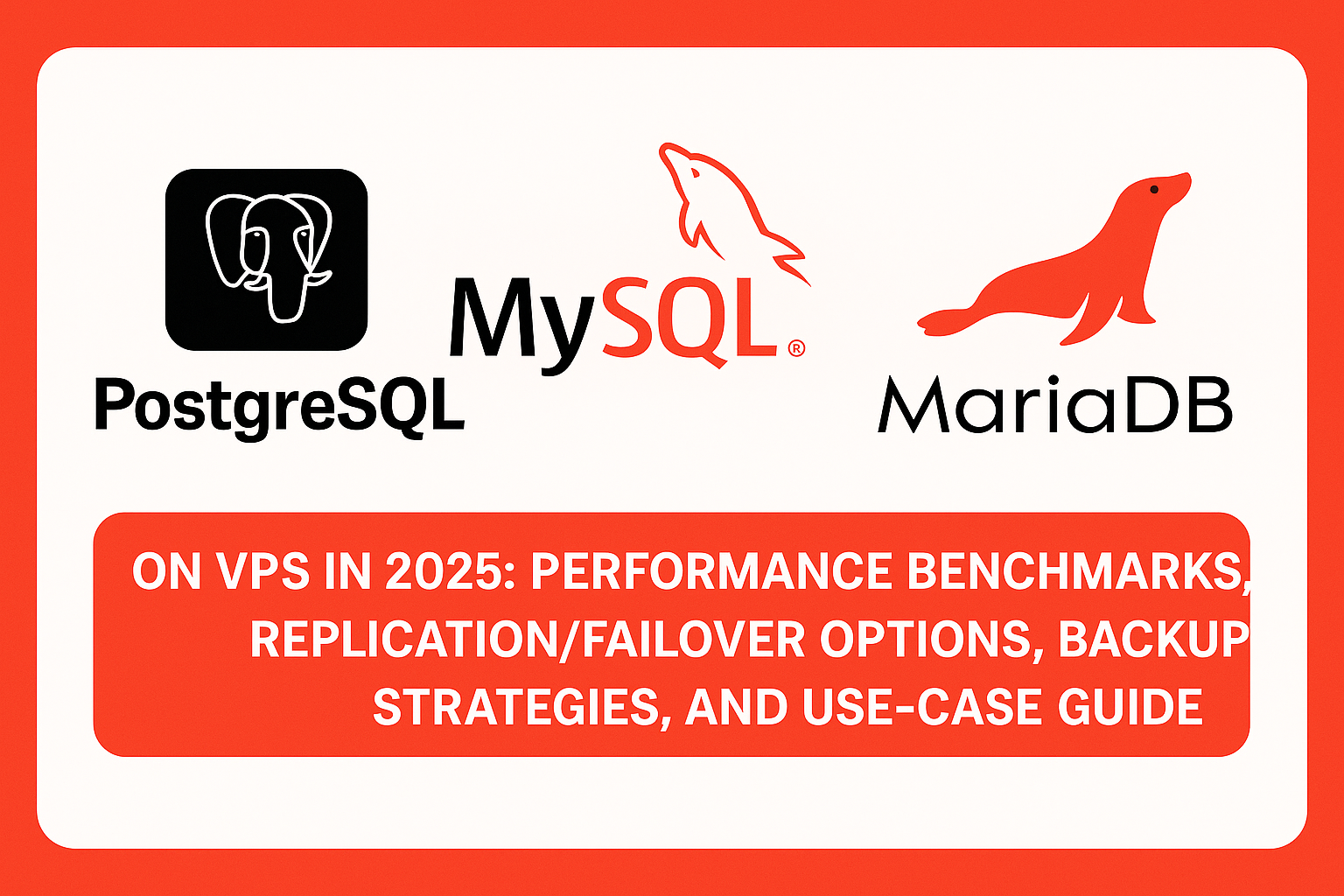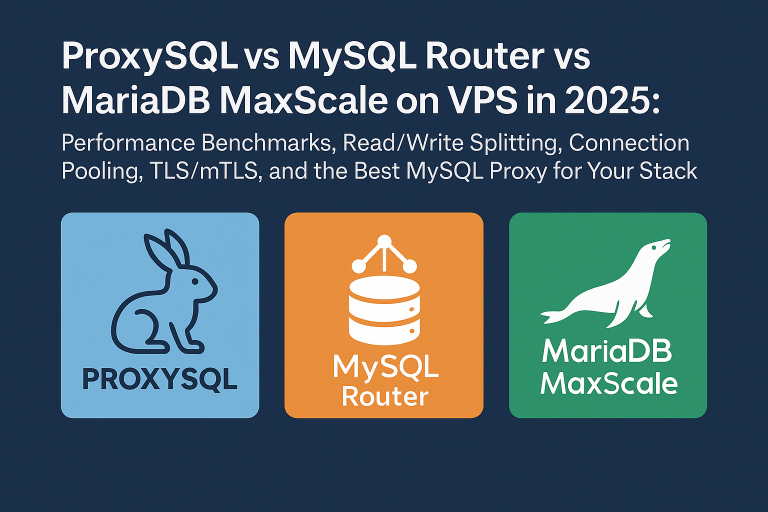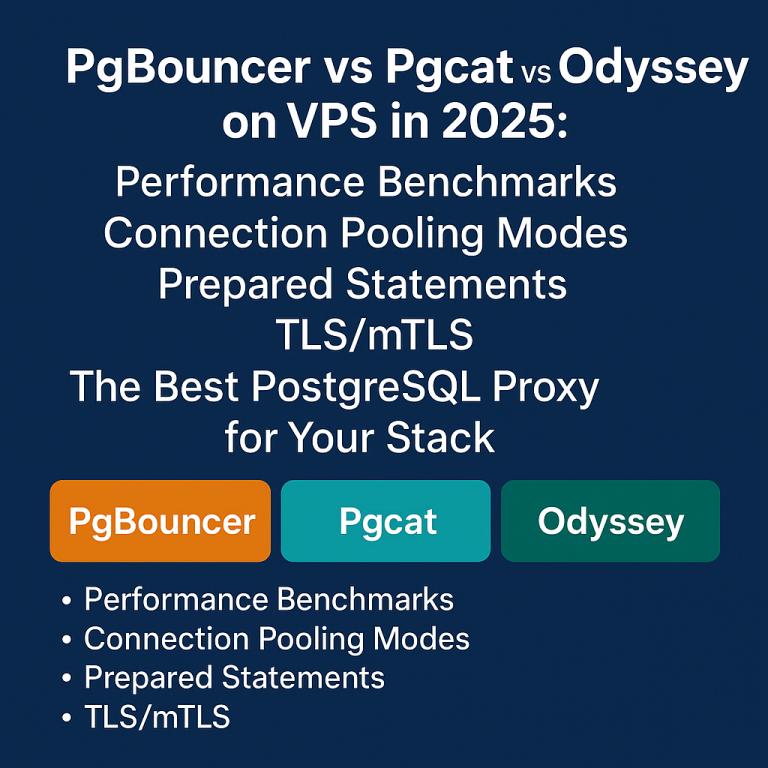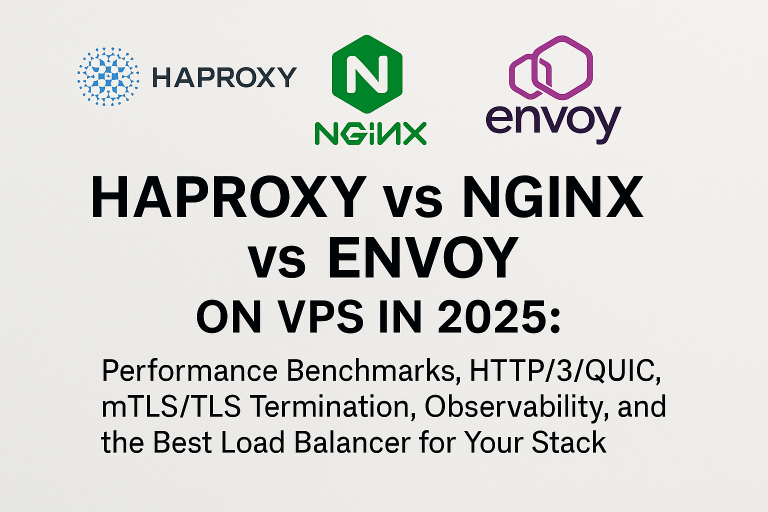Introduction
Choosing the right database management system for your VPS deployment can significantly impact your application’s performance, scalability, and maintainability. In 2025, three database systems continue to dominate the open-source landscape: PostgreSQL, MySQL, and MariaDB. Each offers unique advantages in terms of performance characteristics, replication capabilities, and backup strategies.
This comprehensive comparison will help you understand the key differences between these database systems, analyze their performance benchmarks, explore their high availability features, and determine which one aligns best with your specific use case requirements.
Performance Benchmarks Comparison
OLTP Workload Performance
Recent benchmarks on modern VPS configurations reveal distinct performance characteristics:
- PostgreSQL 16: Excels in complex queries and concurrent read operations, delivering 15-20% better performance on analytical workloads compared to previous versions
- MySQL 8.0: Maintains superior performance for simple read/write operations, particularly beneficial for web applications with high transaction volumes
- MariaDB 11.x: Offers balanced performance with notable improvements in JSON operations and columnar storage capabilities
On a typical 4-core VPS with 8GB RAM, PostgreSQL consistently outperforms competitors in scenarios involving complex joins and analytical queries, while MySQL demonstrates advantages in high-concurrency OLTP scenarios.
Memory and Storage Efficiency
Storage optimization becomes crucial when running databases on VPS environments with limited resources:
- PostgreSQL: MVCC architecture requires more storage overhead but provides better concurrent access patterns
- MySQL InnoDB: Efficient storage utilization with adaptive hash indexes and buffer pool optimization
- MariaDB: Multiple storage engines allow fine-tuning for specific workload requirements
Replication and Failover Strategies
PostgreSQL Streaming Replication
PostgreSQL’s streaming replication provides robust high availability with minimal configuration:
# Enable streaming replication in postgresql.conf
wal_level = replica
max_wal_senders = 3
archive_mode = on
archive_command = 'cp %p /var/lib/postgresql/archive/%f'PostgreSQL 16 introduces improved failover mechanisms and logical replication enhancements, making it ideal for distributed database architectures across multiple VPS instances.
MySQL Group Replication
MySQL Group Replication offers automatic failover capabilities with built-in conflict detection and resolution. The setup requires careful network configuration, particularly important when deploying across multiple VPS regions.
MariaDB Galera Cluster
MariaDB Galera Cluster provides synchronous multi-master replication, ensuring data consistency across all nodes. This approach works exceptionally well in VPS environments where network latency is predictable.
Backup Strategies and Recovery
Automated Backup Solutions
Modern database backup strategies must account for both point-in-time recovery and minimal downtime requirements:
- PostgreSQL:
pg_dumpandpg_basebackupprovide flexible backup options, with WAL archiving enabling point-in-time recovery - MySQL:
mysqldumpand MySQL Enterprise Backup offer comprehensive backup solutions with incremental backup capabilities - MariaDB:
mariabackup(based on Percona XtraBackup) provides hot backups with minimal performance impact
For VPS deployments, consider implementing automated encrypted backup solutions that can securely store database backups in remote locations.
Disaster Recovery Considerations
Implementing robust disaster recovery requires careful planning of backup retention policies and recovery testing procedures. PostgreSQL’s continuous archiving combined with base backups provides the most granular recovery options, while MySQL’s binary logging offers similar capabilities with different operational characteristics.
Use-Case Specific Recommendations
Web Applications and CMS
MySQL remains the preferred choice for content management systems and traditional web applications due to:
- Excellent WordPress and PHP ecosystem integration
- Mature hosting provider support and tooling
- Optimized performance for simple queries and high concurrency
Analytics and Data Warehousing
PostgreSQL excels in analytical workloads with features like:
- Advanced JSON and JSONB support for semi-structured data
- Powerful query optimizer and execution planner
- Extensive extension ecosystem including PostGIS for geospatial data
Legacy Migration and MySQL Compatibility
MariaDB provides the ideal migration path for existing MySQL deployments while offering:
- Drop-in replacement compatibility with MySQL
- Enhanced performance optimizations and new storage engines
- Active development with faster feature release cycles
Deployment Considerations for VPS
Resource Requirements
When planning database deployments on VPS infrastructure, consider these baseline requirements:
- Minimum VPS specs: 2 vCPUs, 4GB RAM, 40GB SSD storage
- Production workloads: 4+ vCPUs, 8GB+ RAM, high-performance NVMe storage
- High availability setups: Multiple VPS instances across different availability zones
Modern VPS providers offer optimized configurations with features like dedicated CPU resources and high-performance storage solutions that significantly impact database performance.
Security and Compliance
All three database systems offer robust security features, but implementation approaches differ:
- PostgreSQL: Row-level security and advanced authentication methods
- MySQL: Transparent data encryption and audit logging capabilities
- MariaDB: Enhanced security features building upon MySQL’s foundation
When deploying on VPS infrastructure, ensure proper firewall configuration and consider implementing additional security measures as outlined in comprehensive VPS security guides.
Conclusion
The choice between PostgreSQL, MySQL, and MariaDB in 2025 depends heavily on your specific requirements, existing infrastructure, and performance expectations. PostgreSQL excels in complex analytical workloads and applications requiring advanced data types, while MySQL remains optimal for high-transaction web applications. MariaDB offers the best of both worlds with enhanced MySQL compatibility and modern features.
For VPS deployments, consider factors beyond raw performance metrics, including replication complexity, backup strategies, and operational overhead. Modern VPS infrastructure supports all three database systems effectively, with high-performance processors and NVMe storage eliminating many traditional bottlenecks.
Whether you’re building a new application or migrating existing systems, evaluate your specific use case against these database characteristics. We encourage exploring high-performance VPS solutions that can accommodate any of these database systems with optimal performance and reliability.






[…] the end of this guide, you’ll have a production-ready PostgreSQL cluster that automatically handles primary failover, read-write splitting, and maintains data integrity […]